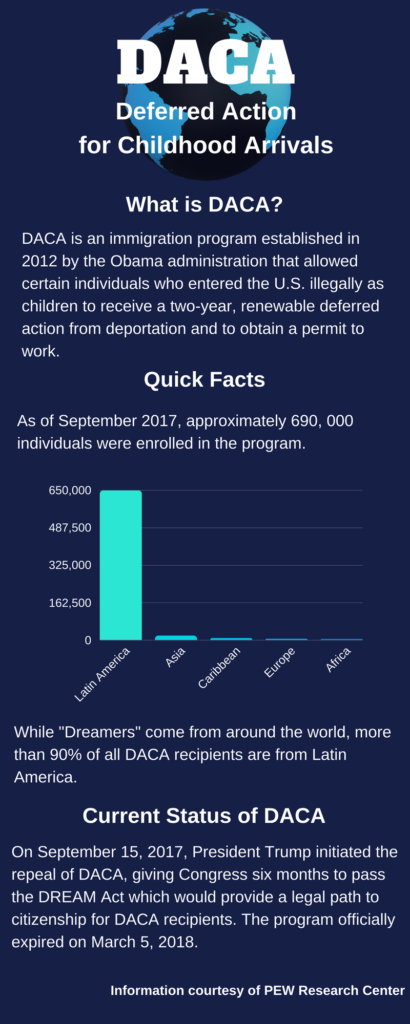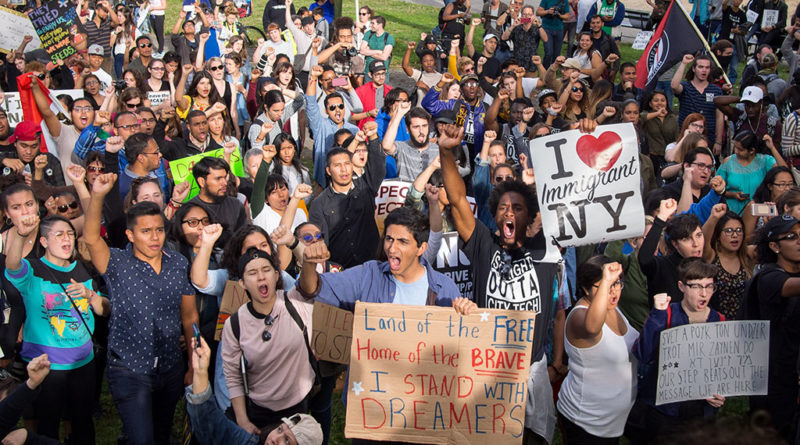“Dreamers” Face Uncertain Future with Repeal
 On Sept. 5, 2017, President Trump ordered an end to a program that protects young immigrants from deportation. This Obama- era program, known as DACA, allowed young immigrants to pursue higher education, work legally and serve in the United States Armed Services.
On Sept. 5, 2017, President Trump ordered an end to a program that protects young immigrants from deportation. This Obama- era program, known as DACA, allowed young immigrants to pursue higher education, work legally and serve in the United States Armed Services.
By the end of 2017, there were four possible DACA solutions (CNN). The “Recognizing America’s Children Act” or RAC would provide a path to citizenship after 10 years to immigrants who had arrived at the U.S. at 16 years or younger and had lived in the country since Jan. 1, 2012. This act would also allow recipients to travel out of the U.S., something that DACA does not allow.
The “Bridge Act” would provide a three-year Visa to an immigrant who entered the country before the age of 16 and had been living in the U.S. since June 2017. This Act does not provide a path to citizenship and would have to be renewed by Congress after three years.
The third possibility is known as the “Succeed Act.” This act would cover an immigrant who entered the U.S. before the age of 16 and had lived in the country since Jan. 2012. This act provides the opportunity to apply for citizenship after 15 years.
The fourth known solution is the Dream Act. The Dream Act was introduced in 2010 but failed to gain support. The bill was once again introduced last year as the “Clean Dream Act.” It provides the fastest way to citizenship as recipients can apply for citizenship after only five years. All of these acts require applicants to have a high school diploma or GED, be enrolled in higher education, enlist in the U.S. military or have valid work authorization.
Since Trump’s decision to end DACA In September of last year, thousands of Dreamers, immigration lawyers and advocates have taken a stand to prevent the termination of the program. Sixteen states AND THE Discrict of Columbia have filed lawsuits against Trump’s decision to terminate DACA. Some of these states include: Pennsylvania, California, Oregon, New York and New Jersey, who joined at the end of January 2018.
On Feb. 26, 2018, the Supreme Court declined to take up a lawsuit over the future of DACA (HuffPost). This decision is a major setback for the Trump administration; however, it all but ensures that DACA will remain in effect for recipients after the deadline originally set by the White House. DACA remains in effect for people already approved for the program, but is no longer available to first time applicants.
Thousands of people are more concerned about the looming program’s official end date: March 5, 2018. Lawsuits continue, and support grows stronger for Dreamers but, the dreaded end date still exists on paper. This date has become a symbolic marker as no one is sure what will happen to the thousands of young immigrants fighting to remain in the country they call home.

